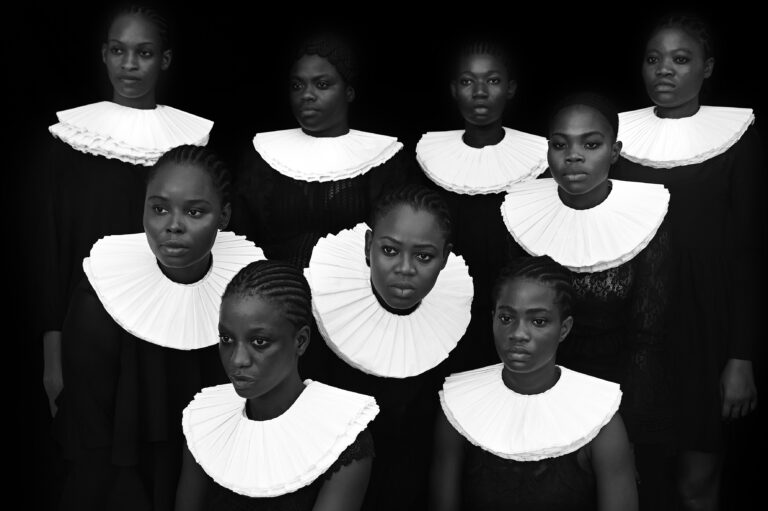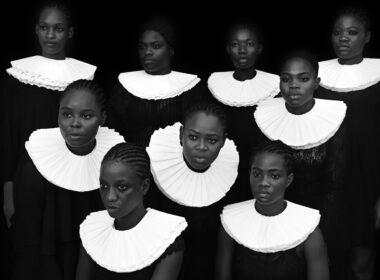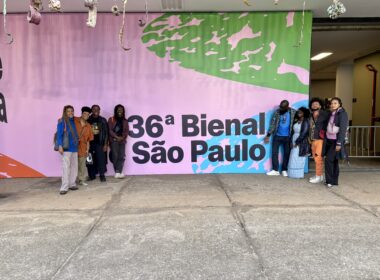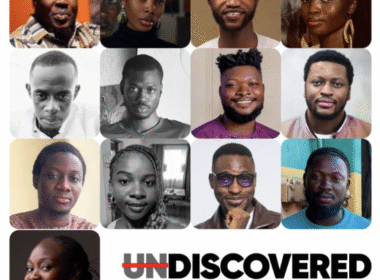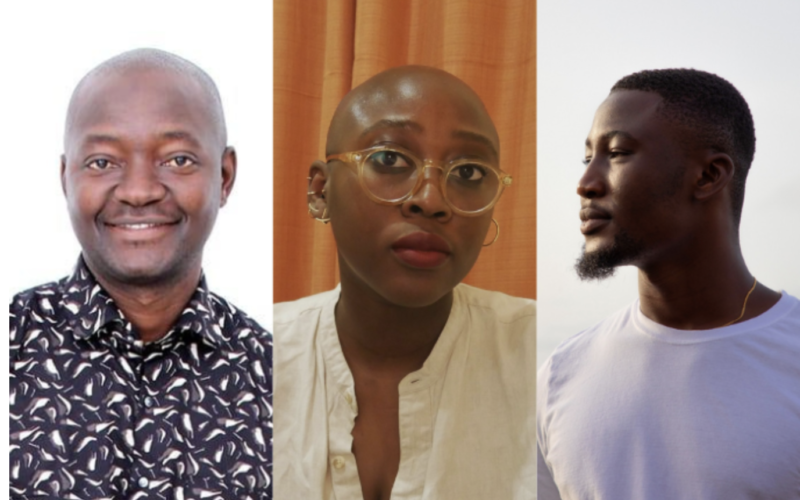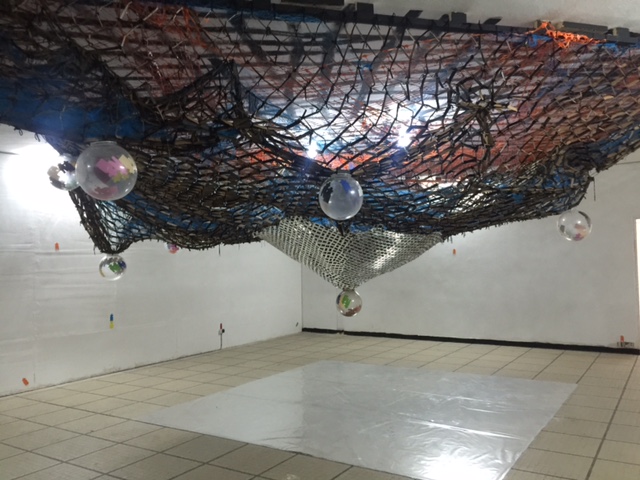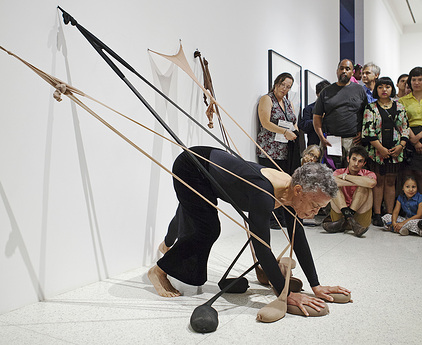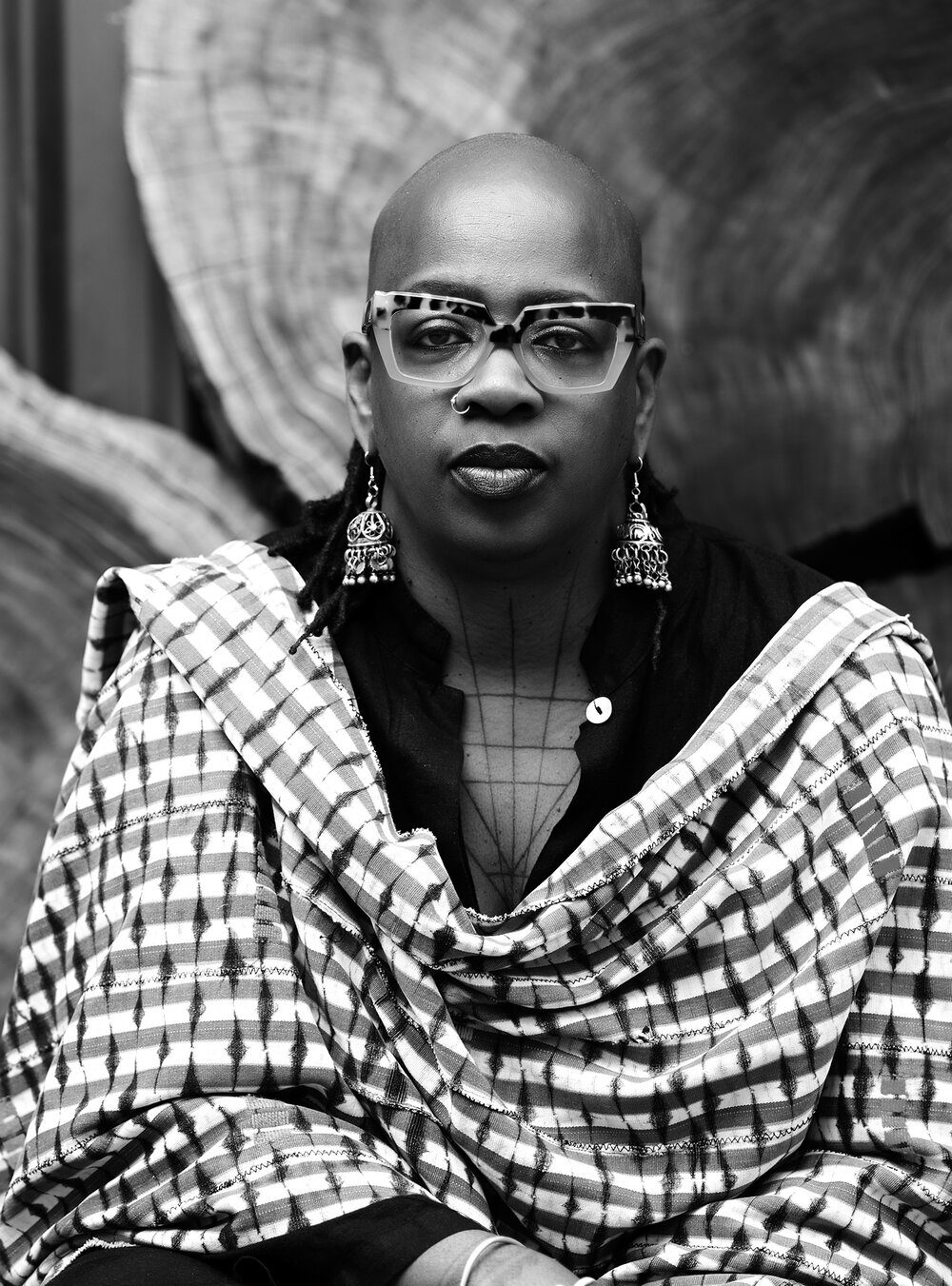This week in African art and culture, the round-up shares news of a reading from a new literary release by one of Nigeria’s thriving voices. We also are pumped to share the news about wins for writers from South Africa, Zambia and Nigeria, all in the spotlight for awards in the international literary community. On a final note, we bring news of an opportunity for cross-disciplinary art practitioners who might want to know what it would be like to live and work in South Africa …
Angels and Muse Hosts T.J. Benson Reading from His Recent Release
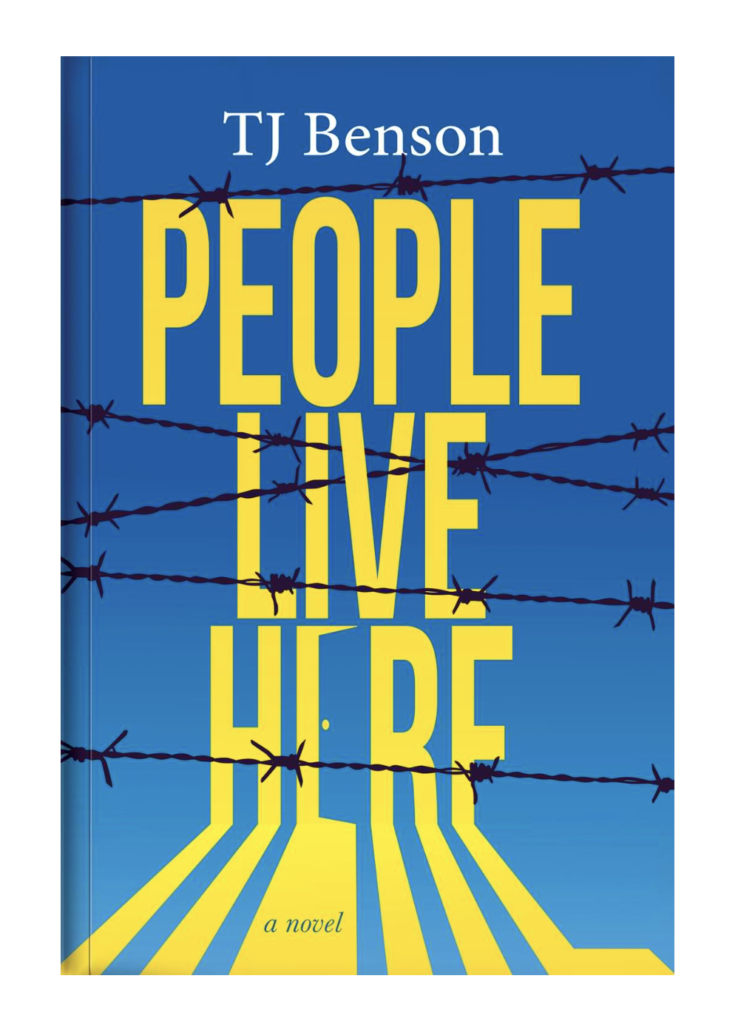
On Sunday, Angels and Muse, in collaboration with Masobe Books, hosted the Lagos literary community to an afternoon of reading with Nigerian author T.J Benson. He read from his recent release, People Live Here. At the reading, Benson admitted that although his previous titles, The Madhouse (2021) and We Won’t Fade into Darkness (2018), were published first, People Live Here was actually his first book. The anecdote for this book stemmed from his personal experience when he first needed to find a house to live. This served as the basis for which the main character, Kanulia was developed, blowing into a rather complex story exploring a theme around mental health.
The story follows Kanulia, a 25-year-old single mother, whose quest for a better job that will help her raise her son in the post-fuel-subsidy-removal crisis of January 2012 in Nigeria lands her foreign-aid nursing work in Sana’a in the aftermath of the Yemeni Uprising the previous year. With the cast of eccentric-yet-friendly coworkers from all over the world, she eases into the old city, taking in the architecture. She begins a journey of friendship, trauma and rediscovery that will bring her back to Nigeria a changed woman, even though she is initially unaware of it. It’s a change that will save lives at the crisis-stricken northern borders of her country.
Benson also talked about the creative process behind this novel that transports the reader between unexpected countries. He also shared insights for young and aspiring writers during the Q&A segment, encouraging them to write more before considering publishing to enable them to hone their craft.
Angels and Muse is an alternative cultural space and thought laboratory founded by Nigerian visual artist Victor Ehikhamenor. The core of Angels and Muse is to foster conversation around multidisciplinary art across visual art, literature and culture through discourse and workshops.
Some of its focus this year is to support more creatives, particularly artists, writers and curators by offering learning and career-building opportunities to ensure that creatives benefit from a scalable profession that can see them compete and thrive on international ground. Since its founding in 2018, Angels and Muse has supported many creatives who have gone on to receive international acclaim in their various fields.
South African Writer Hana Gammon Wins the 2023 Commonwealth Prize (Africa Region)
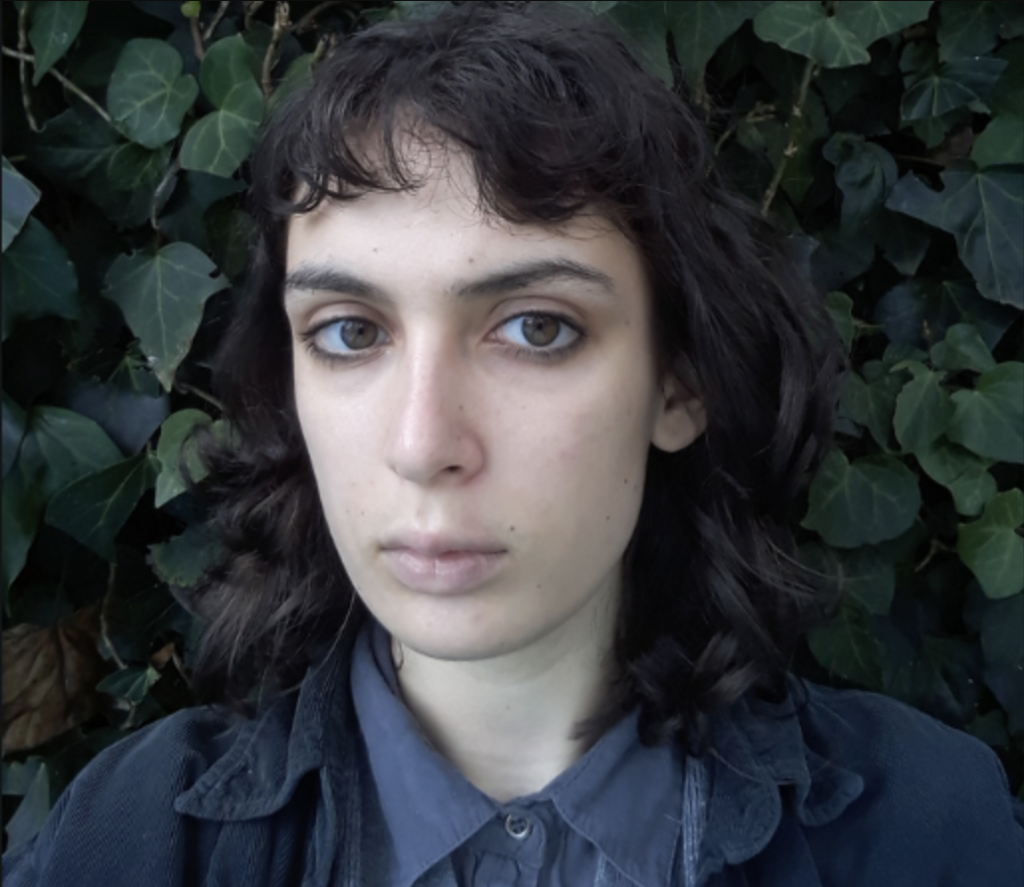
South African writer Hana Gammon has emerged winner of the 2023 Commonwealth Short Story Prize, Africa region. At age 20, she is one of the five regional winners (and the youngest), selected from 6,642 entrants and a shortlist of 28.
Facilitated by the Commonwealth Foundation, the Commonwealth Short Story Prize is awarded for the best piece of unpublished short fiction globally. The regional winners receive £2,500 (U.S. $3,087), while the overall winner receives £5,000 (U.S. $6,173).
Gammon is from Cape Town, South Africa, where she is pursuing a first degree in language and culture at the University of Stellenbosch. Her winning story, The Undertaker’s Apprentice, topped the shortlist that featured work by fellow South Africans Michael Boyd and Matshediso Radebe, Kenyan writers Buke Abduba and Josiah Mbote, and H. B. Asari from Nigeria.
The Undertaker’s Apprentice tells the story of a group of children in a small town, relaying their interactions with the town’s somber-but-kind mortician. As the children grow up, they are forced to question issues of growth, decay and exchange between different states of being. Gammon said that The Undertaker’s Apprentice was inspired by her fascination with the idea and mystery of death:
“The topic of death—and of anything to do with change, decay and liminality, really—is one that has been a source of much fascination and questioning for me my whole life … The story was also, in part, inspired by my research on funerary science and its history … There’s a lot about death that we don’t know and probably never will know as long as we’re on this side of the grave, but I do have faith that death can be as much of a beginning as it is an end.”
She said she hopes that her story brings some understanding to “how we embrace life, death, and change.”
Namibian writer Rémy Ngamije, the judge representing Africa commended the story for the complex way it tackled a subject such as death and loss, adding that the quality of the story says a lot about the “richness” of storytelling on the continent.
The Undertaker’s Apprentice is a carefully observed, patiently narrated and exquisitely written story about youth and the ways we come to adulthood by experiencing loss and death. There is, at its heart, a complex examination of the exchanges made between the living and the dead, the young and the old, and the experienced and the naive. Gammon’s command of language is gentle but powerful and provides each reader with their own way of coming to terms with the fruits of their reading.
The other winning stories include Oceans Away from My Homeland by Agnes Chew (Asia), Lech, Prince, and the Nice Things by Rue Baldry (Canada and Europe), Ocoee by Kwame McPherson (the Caribbean), and Kilinochchi by Himali McInnes (The Pacific).
The stories of all five regional winners will be published online by the literary magazine Granta. Gammon automatically will be entered to compete for the grand prize, which will be announced in an online ceremony on June 27.
Three African Authors Receive the 2023 O. Henry Prize for Short Fiction
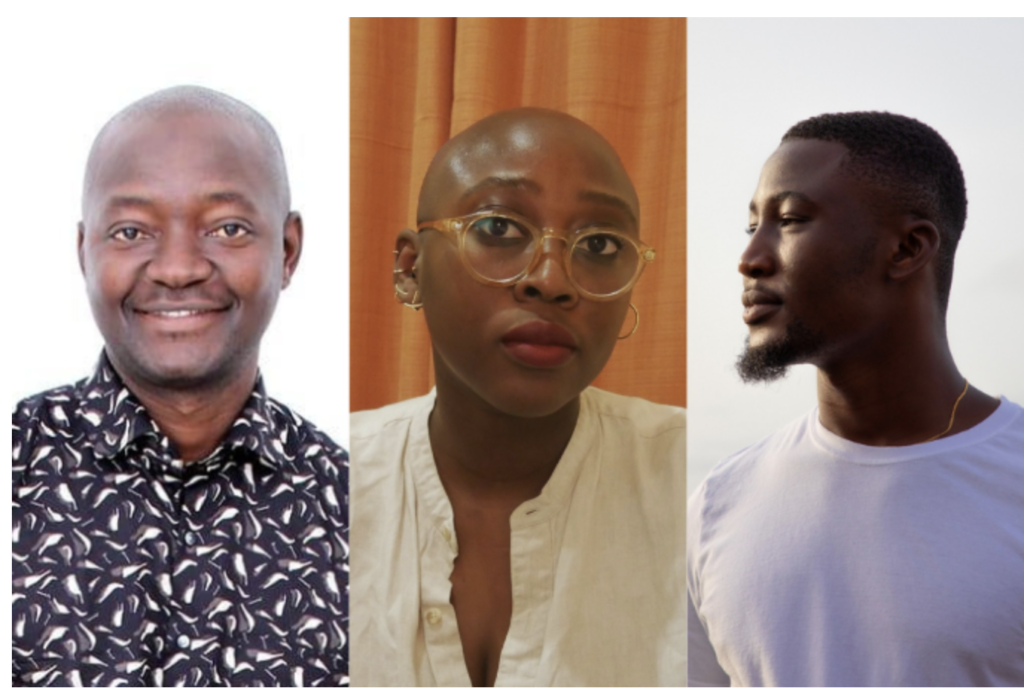
Jacob M’hango, Pemi Aguda and Arinze Ifeakandu.
Three African authors have been awarded the 2023 O. Henry Prize for Short Fiction. They are Jacob M’hango from Zambia and Nigerian writers Pemi Aguda and Arinze Ifeakandu.
Named after the famous American short story writer O. Henry and founded in 1919, the award selects 20 short stories of exceptional merit every year from U.S. and Canadian magazines.
- Jacob M’hango – The Mother, published on the Short Story Day Africa website.
- Pemi Aguda – The Hollow, published in Zoetrope.
- Arinze Ifeakandu – Happy Is a Doing Word, published on The Kenyon Review website.
All 20 winners will be published in September in the annual anthology, The Best Short Stories 2023: The O Henry Prize Winners, edited by Lauren Groff.
Groff said about this year’s stories, “The Best Short Stories 2023 was assembled for you, dear reader, to give you a sense of the enormous range and capacity of the contemporary short story, to make you laugh, to bewilder and delight and scare you, to show you the thriving ecosystem of the short story as it existed in the world this strange third pandemic year, to give you a glimpse of the extraordinary diversity of voice and journal and nationality and subject matter that the short story, most vibrant of narrative forms, encompasses.
“You will certainly like some of these stories more than others; some will be set at your current vibration levels; it seems likely to me that others that you may not appreciate just now will find you where you will be at some point in the future. If our adolescent mixtapes were a shy declaration of affection, please accept this year’s O. Henry anthology for what it is: a loud declaration of love.”
Tsitsi Dangarembga on Her Acquittal of Charges of Inciting Violence
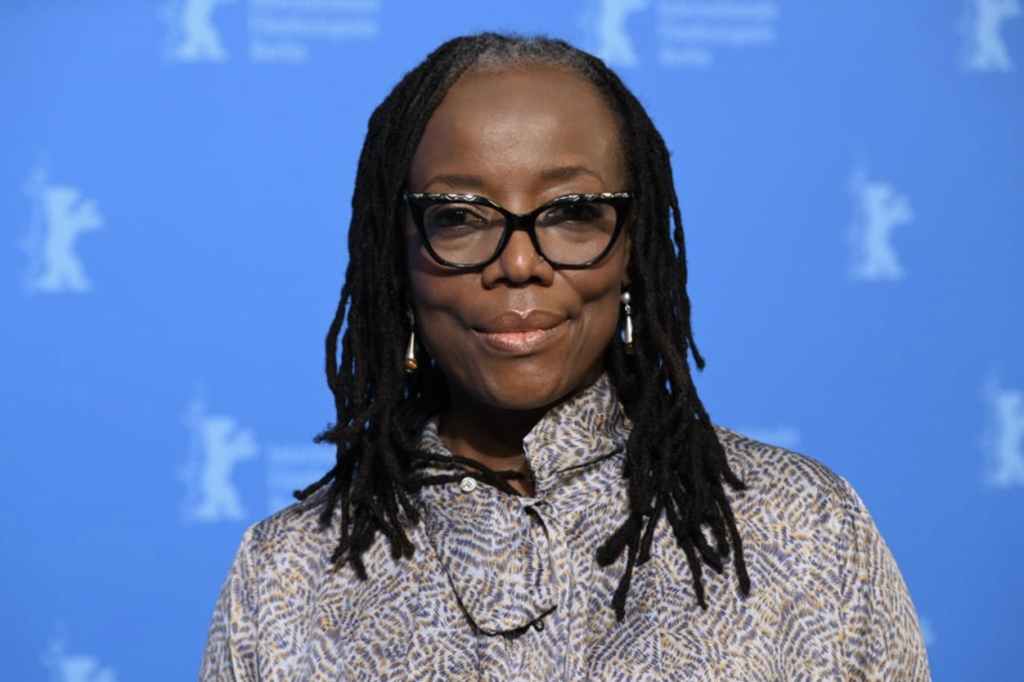
Last September, Zimbabwean author Tsitsi Dangarembga was given a six-month suspended sentence and charged a fine for inciting violence in Zimbabwe. The High Court of Zimbabwe recently overturned this conviction and acquitted Dangarembga of the charges.
The issue began in August 2020 when Dangarembga and fellow activist Julie Barnes were arrested while they were protesting to ask the government to release investigative journalist Hopewell Chin’ono, who was wrongfully arrested.
The Zimbabwean authorities had said that Dangarembga and Barnes had been arrested for inciting the public to violence, participating in illegal demonstrations and spreading political messages to cause public unrest.
Dangarembga had pleaded not guilty in the trial and told the BBC, “The space for freedom of expression and freedom of the media is shrinking and increasingly criminalized.”
While pleased to have been acquitted of the charges, Dangarembga issued a statement on Twitter to share her thoughts on the issue as a whole.
A South Africa Residency Project by Goethe-Institut Calls for Applications
LAPA, a Pan-African residency project and space organized by Goethe-Institut, South Africa, is currently receiving applications from African artists and art professionals working on the continent and throughout the diaspora. The residency seeks to provide an enabling environment for artists to explore new ideas, experiment with different media and grow their practice through research and collaboration to establish meaningful connections with the global artistic community.
Lapa is a colloquial term in southern Africa that translates to “a home, a space to gather and restore.” Leaning on this idea, the residency, which provides artists and art professionals an opportunity to live and work in Johannesburg for three months, becomes a space of communing and “homing” through artistic practice to encourage restorative sensibilities.
The LAPA space is housed in the Breezeblock building in the suburb of Brixton, Johannesburg. It prioritizes its connection with the community and asks, what kind of potential can be achieved when certain people are housed together?
Previous recipients of the residency include Duduetsang Lamola (blk.banaana) and Tinofireyi Zhou, aka Aero5ol (for the first edition), Darlyne Komukama, Liz Kobusinge and Wyssolela Moreira, who collaborated with Anita Sambanje (for the second edition).
For the 2023 and 2024 programs, selection for the residency will prioritize joint applications. Artists working together, in tandem and in pairs are welcome to submit a joint application. While priority will be given to practitioners working on the continent, applications from the diaspora are also encouraged, as this provides an important linkage between geographies of work.
Submissions will be reviewed by a panel of jurists. Applications are open to all (with or without formal art education) who have a minimum of five years of professional practice. Selection criteria for successful applicants will be based on the quality of their work, the relevance of the proposed project to current social, economic or environmental issues and the potential for cross-cultural exchange.
LAPA will offer support for flight and ground travel to the residency, a monthly living stipend, and a separate budget will be allocated to artistic production and public engagement.
Submission Guidelines
Applications should be submitted by midnight SAST, Wednesday, May 31, 2023, through the LAPA Google form. All applicants will receive a response by June 30, 2023.
Compiled by Roli O’tsemaye
